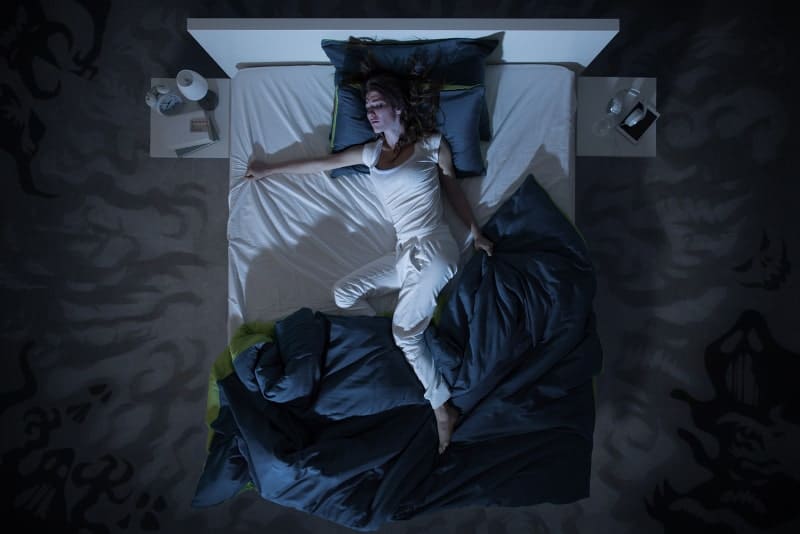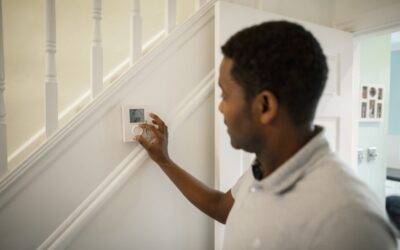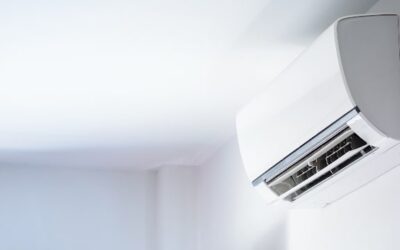Indoor air quality (IAQ) is a major concern for homeowners, especially in Gulf Breeze, FL during the winter. While many people think that air quality is better at night, it’s actually worse. There are several reasons why indoor air quality can be worse at night.
Reduced Ventilation
During the day, you may have windows and doors open, allowing fresh air to circulate through your home. At night, however, you close everything up to keep out the cool air and prevent noise. This lack of ventilation can trap indoor air pollutants, making the air inside the home more stagnant and polluted, thus reducing the indoor air quality.
Increased Humidity
If you and your family members shower at night, remember to always use the exhaust fan in the bathroom. It’s always good to use your kitchen exhaust fan when preparing dinner also, helping to release humidity from cooking.
Emission from Building Materials and Furnishings
Many building materials, furnishings, and household products release chemicals and pollutants into the air. These emissions can become more concentrated in the absence of ventilation, leading to worse indoor air quality at night. Common sources of indoor air pollution include paints, carpeting, furniture and cleaning products.
Dust From Beddings
Dust from bedding is a common reason why indoor air quality (IAQ) is worse at night. As you sleep, you disturb the bedding and pillows, which releases trapped dust particles into the air. This can make breathing difficult and worsen respiratory issues, especially for those with allergies or asthma.
Dust mites, which are commonly found in bedding, can also contribute to poor IAQ. These tiny creatures feed on the skin cells that you naturally shed while sleeping and release allergens into the air.
Stagnant Air
During the day, people are more active, which helps to circulate air and improve air quality. At night, however, people are more likely to be asleep, which means there is less movement and air circulation. As a result, air can become stagnant, which can cause allergens, dust and other particles to build up and reduce indoor air quality.
Increased Use of Gas-Powered Appliances
Gas-powered appliances, such as furnaces and boilers, emit gases and particles into the air, which can reduce indoor air quality. The use of these appliances increases during the colder months, particularly at night, as people rely on them to keep their homes warm.
The increased use of gas-powered appliances at night can make indoor air quality worse. This is because you close your windows and doors at night, and the pollutants from these appliances have no way to escape.
The use of gas-powered appliances can also lead to increased levels of carbon monoxide (CO) in the home. CO is an odorless and colorless gas that is a byproduct when you burn fuels, such as natural gas, propane and oil. CO is highly toxic and can cause serious health problems, including headache, nausea, dizziness and even death if inhaled in high concentrations over a long enough period.
How to Improve Indoor Air Quality at Night
There are several steps you can take to improve indoor air quality at night and ensure that your home is a healthy place to sleep. These include:
- Use an air purifier to remove allergens and other particles from the air.
- Make sure you maintain your gas-powered appliances and have them inspected regularly to minimize emissions.
- Reduce humidity levels in your home by using air conditioning and dehumidifiers, especially at night.
- Ventilate your home by opening windows or using a ventilation system to circulate fresh air.
- Clean your home regularly to remove allergens and other particles from surfaces and the air.
Contact us at Lunsford Air Conditioning & Heating for heating services you can trust in Gulf Breeze, FL. We take pride in our comprehensive lineup of indoor comfort services and are ready to meet any challenge that comes our way. Experience the difference for yourself.
Image provided by iStock




